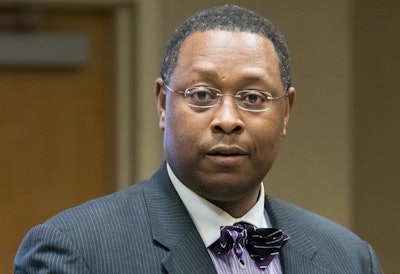When students enter formal school settings, education professionals are responsible for supporting the whole child. Every day, pupils enter these school settings with psychological and social-emotional challenges that oftentimes impede their academics. In many schools across the United States, teachers and school counselors join forces to promote student success in a myriad of ways, including addressing any pressing psychological and social-emotional concerns. The teacher-school counselor collaboration embodies a merger of educational expertise to support the needs of students and the school at large. Due to lingering COVID-19 global pandemic effects, critical school counseling services are needed more than ever, as well as the meaningful collaborations they establish with teachers to support students. The COVID-19 virus has spurred numerous changes throughout the world, which are likely to produce longstanding, negative consequences on the learning and mental health of students.  Dr. James L. Moore III
Dr. James L. Moore III
Too many to count, schools are confronted with unyielding “concerns with mental health and behavioral issues related to the COVID-19 stay-at-home orders as K-12 students are returning to school buildings.” It is likely that school closures, social isolation, family instability, and death and sickness have had traumatic effects on the mental health of students. Stated differently, due to the pandemic, students are experiencing increased levels of stress, anxiety, and grief. Regardless of how resilient students may be or not, we suspect that mental health issues will continue to intensify among the approximately 49.4 million students across the country. Counselors are oftentimes the only school professionals in schools who are trained to work with students experiencing psychological and social-emotional issues. Unfortunately, Blacks and other people of color have been disproportionately impacted by the global pandemic – casualties of catching and being hospitalized with COVID-19 and dying from the virus. “Among the [many] explanations accounting for these disparate outcomes is that of the second pandemic… structural racism.” Further, many Black students have come under assault with the onslaught of Critical Race Theory (CRT) attacks, often spurred by various House Bill Proposals across the country that have led to bans of CRT from schools, initiated by many who claim to support diversity. Rashawn Ray and Alexadra Gibbons recently wrote, “CRT has become a new bogeyman for people unwilling to acknowledge our country’s racist history and how it impacts the present,” but often misinterpreted, misrepresented, and muddled by conservative activism.
Without ceasing their ill-informed, illogical, and irrational arguments, distortions, fabrications, etc., CRT opponents have now added students’ mental health to their dangerous arsenal. Recent state legislation in Alabama was introduced to ban the use of the American School Counselor Association (ASCA) standards in public schools. Further, the resolution claims that the ASCA’s standards try to “indoctrinate all Alabama public-school students, grades K-12 in a personal/social development program (including social engineering–diversity, equity, same sex marriage, etc.) without the knowledge of the parents,” according to Trisha Powell Crane. The GOP contends that school counselors indoctrinate students in HB457. Indeed, as stated by the president of the American School Counselor Association, Sandi Logan-McKiibben, “Now here's some BS, haven't ever seen a state bill go to legislation that effectively CANCELS #SchoolCounseling all together?”
Moore: In 2002, I came to The Ohio State University because of its rich reputation of transforming school counseling to meeting the needs of the most vulnerable and impacted by educational, familial, and social problems. Likewise, I entered the profession with the expressed goal of going beyond the three Rs – reading, writing, and arithmetic – to support students, particularly those who are the most educationally vulnerable and most harmed by social/societal and academic ills and injustices. This sentiment was also expressed by the U.S. Secretary of Education Dr. Miguel A. Cardona.
"Our efforts as educators must go beyond literacy, math, history, science, and other core subjects to include helping students to build the social, emotional, and behavioral skills they will need to fully access and participate in learning and make the most of their potential and future opportunities. Amid the pandemic, we know that our students have experienced so much. We can't unlock students' potential unless we also address the needs they bring with them to the classroom each day. As educators, it's our responsibility to ensure that we are helping to provide students with a strong social and emotional foundation so that they also can excel academically."
Students who hurt outside of school also hurt inside the school walls. Hunger, depression, anxiety, stress, and suicidal ideations have increased drastically as a result of the global pandemic. Like other education professionals in the building, school counselors are working overtime; their skills are stretched and being challenged by new and more intense demands from the dual pandemics previously noted.




















